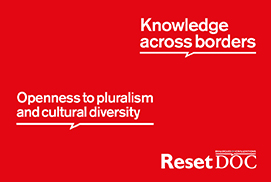11 July 2017
Search Results for: Margot Badran
-
-
29 October 2009Over the past two decades Muslim women, together with other concerned women as feminist activists, human rights activists, and democracy activists, formed global networks, forums, and associations which, along with local initiatives, have struggled to achieve legal and functional equality in the family. Modern information technologies, instantaneous interconnectedness through the Internet, websites, training manuals, books, articles, and pamphlets are vehicles for the spread of equality ideas and practices in the family among Muslims and between Muslims and others, reaching women across the spectrum from elites to ordinary women both urban and rural, trying to place options before people.
-
12 October 2009In "My Prison, My Home," Ms. Esfandiari, a scholar, author and public intellectual who directs the Middle East Program at the Woodrow Wilson International Center for Scholars in Washington, recounts the story of her detention in Iran. From May 8, 2007, it included incarceration in the infamous Evin prison, where she remained for a total of 105 days until she was set free in late August and finally allowed to leave the country. Reading this book makes striking how interlocked we all are in this world - the free and the less free.
-
6 July 2009One hundred years of women's struggle surrounded the US president, and echoed in his words, in his address from Cairo University. On 4 June 2009 it was a woman's voice that resounded in the Great Hall of Cairo University announcing: "The president of the United States of America." Over the past century, women in Egypt, thanks to their own efforts, have gained many rights and increased freedom to take charge of their lives, to make their own choices.
-
30 April 2009The condition experienced by Muslim woman is now more than ever a crucial element not only in the policies of Muslim states, but also in those of countries in which Muslims are a growing minority. The female body is in fact at the centre of a debate that goes well beyond women themselves and concerns crucial issues of our times, such as Islam’s relationship with democracy and the West, the definition of what citizenship means today, the characteristics of post-national states and the nature of international relations, as shown by the use of female images both in many cooperation projects and in ongoing wars.




